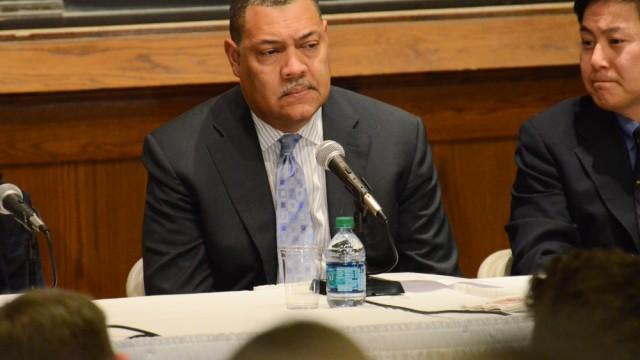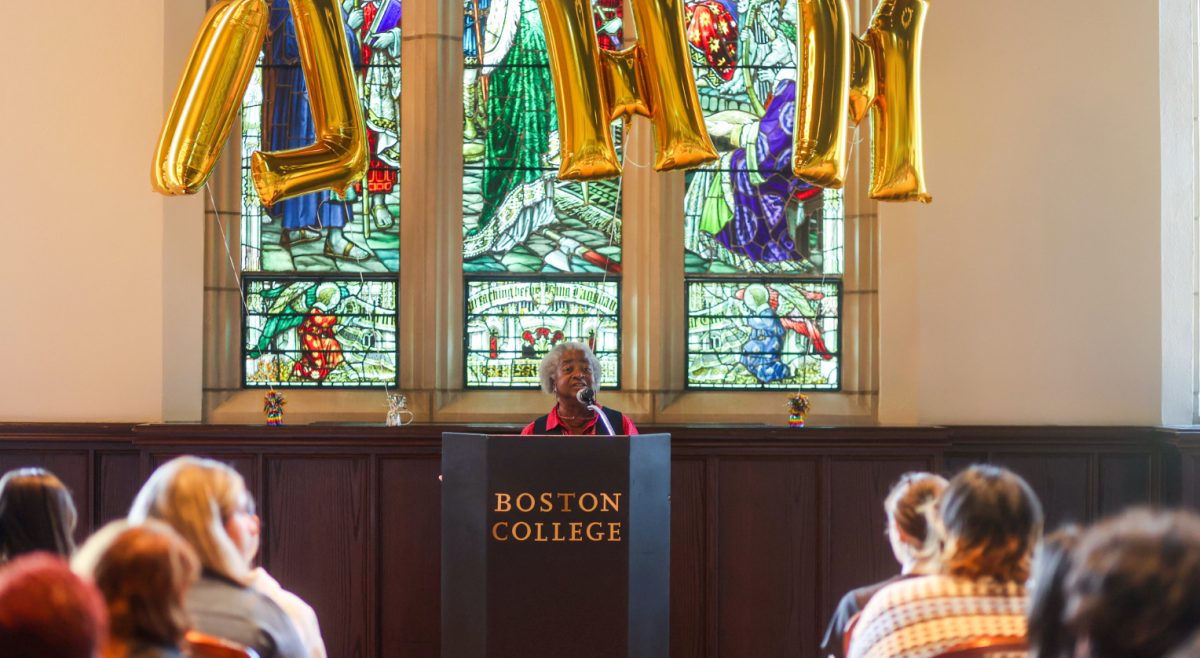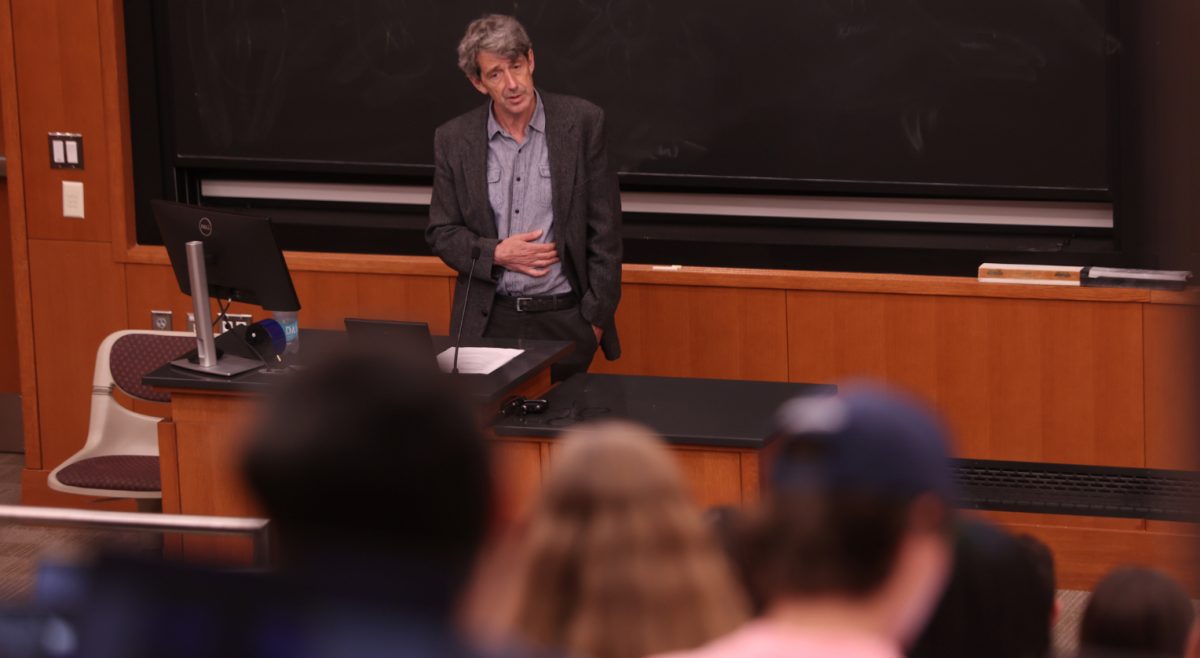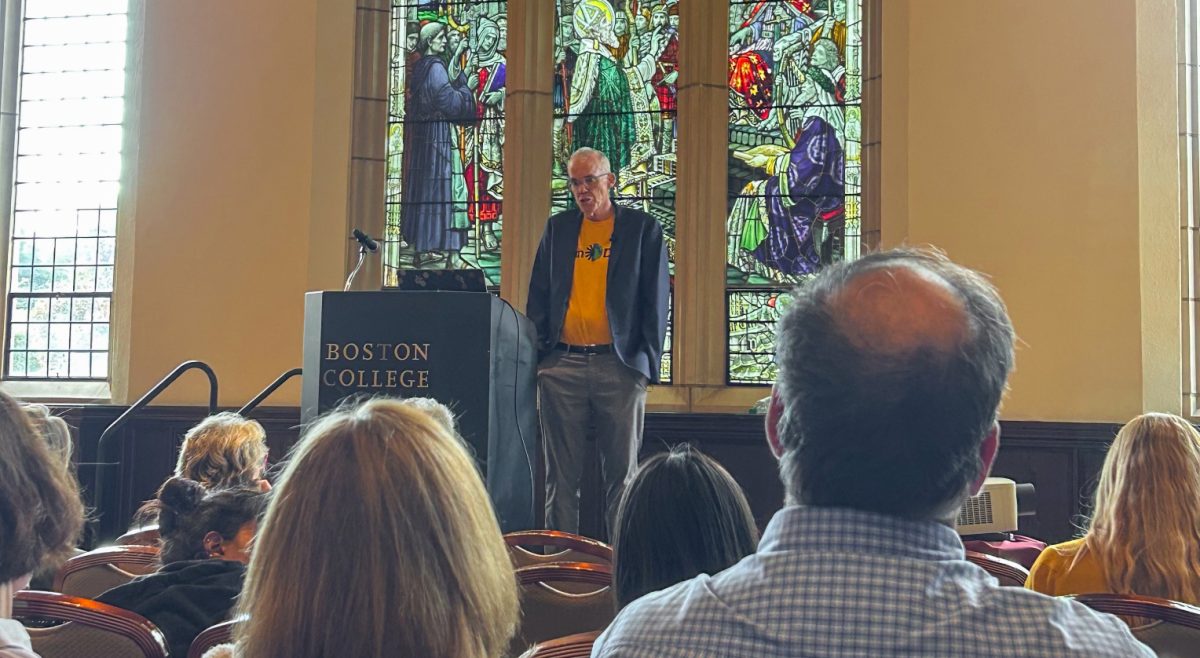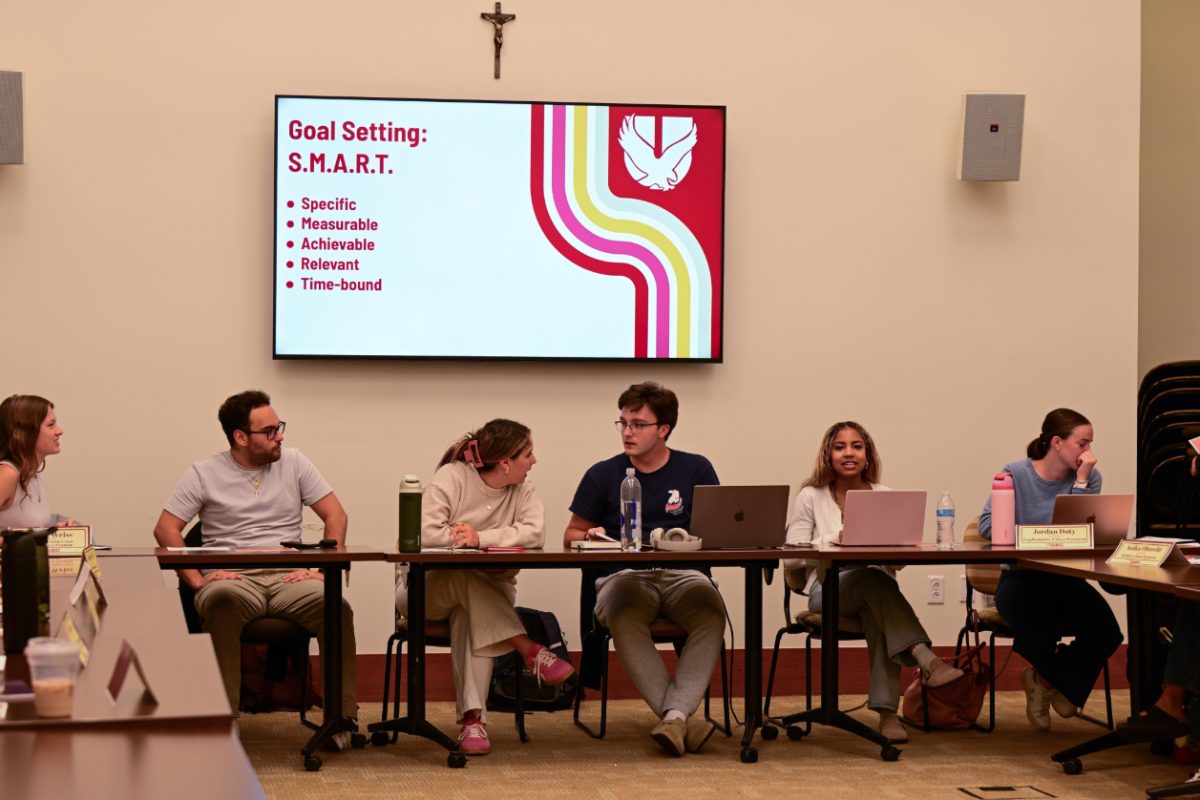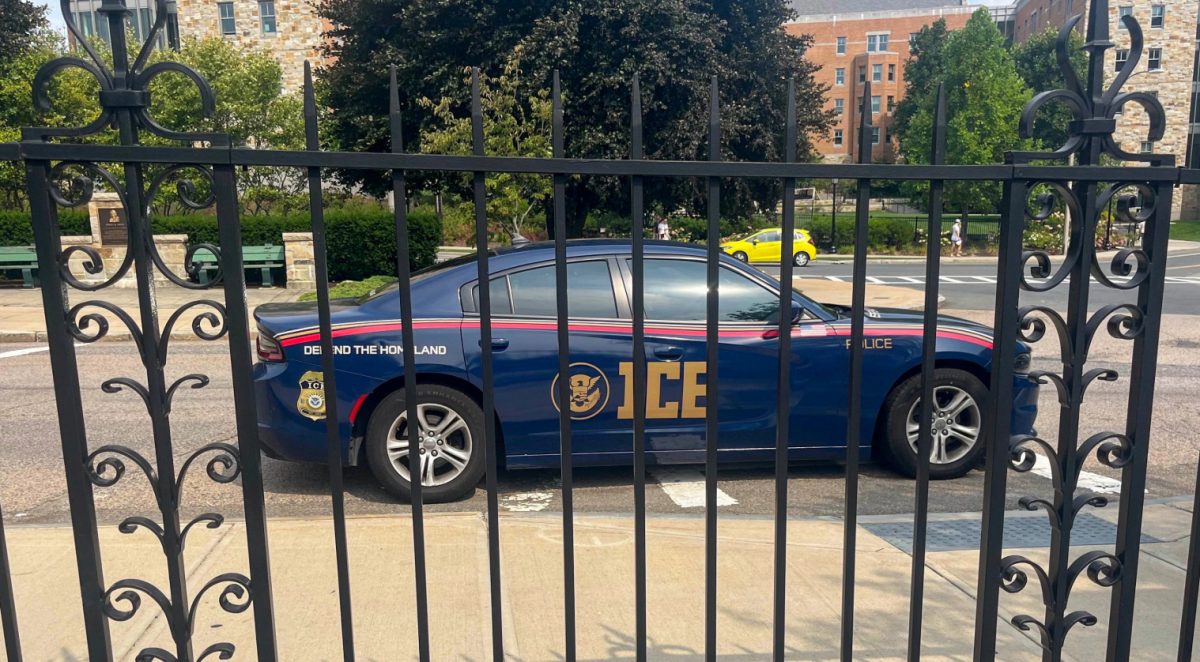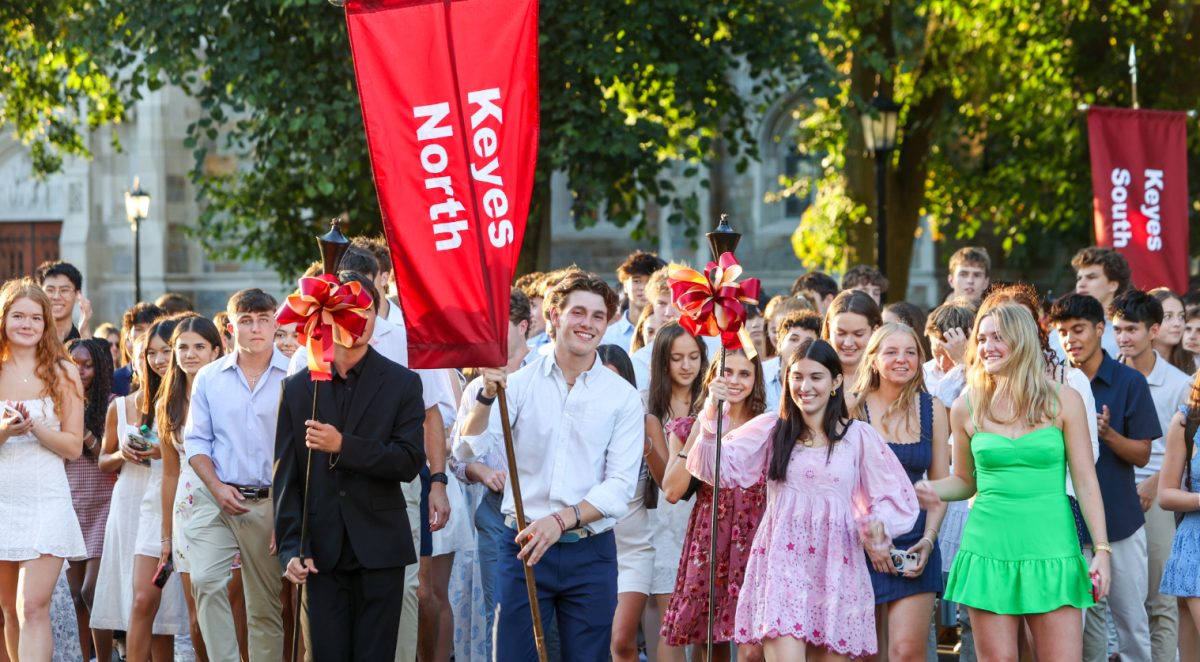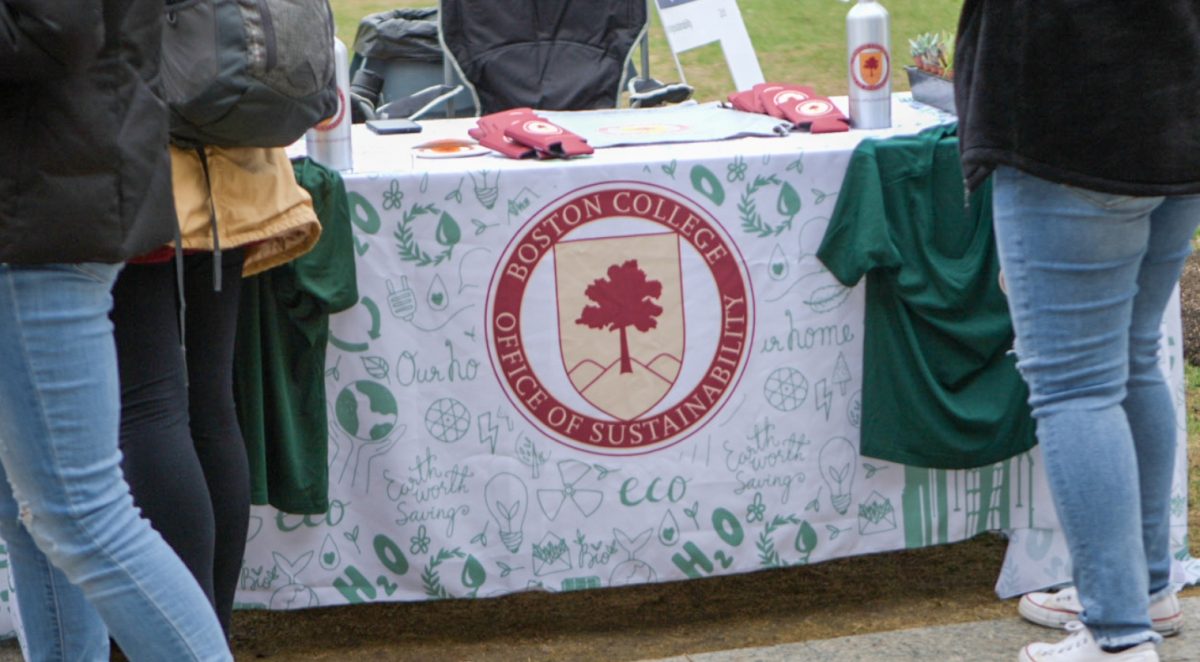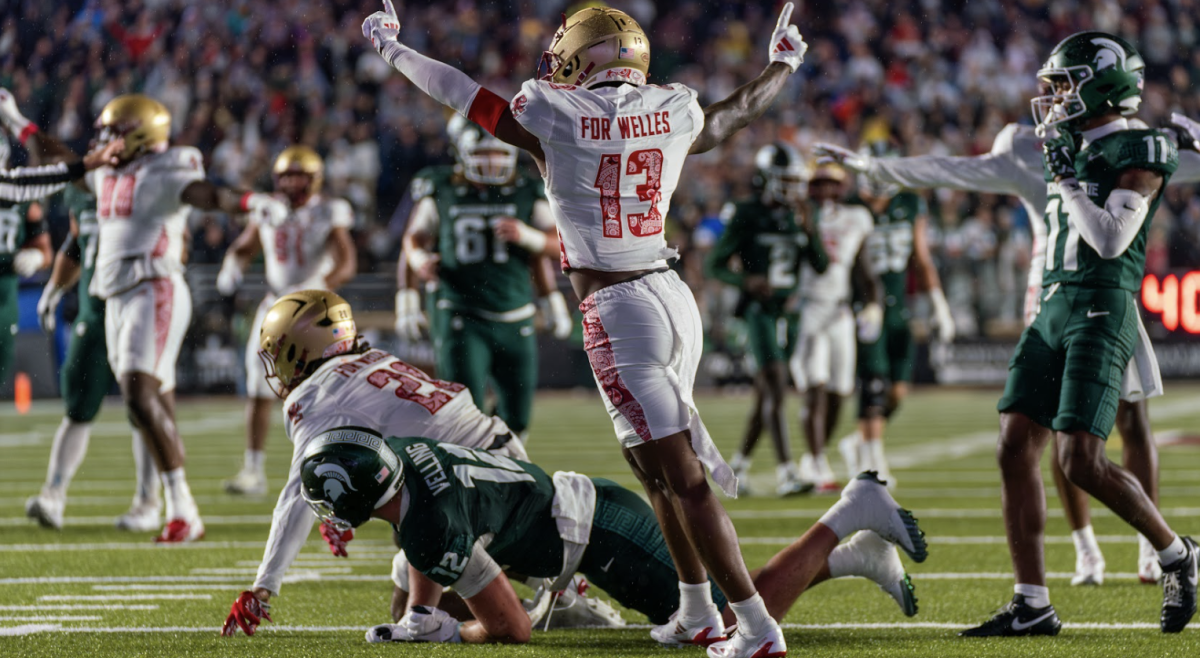“We are seeing in this panel a real commitment of those who are devoted to the race issue at Boston College. We should celebrate that we are here for these conversations.”
The Wednesday night panel touched on the issue of race and differences between classes with informative commentary from five featured faculty members from various disciplines, including professor of English Min Song, assistant professor of sociology Rev. Gustavo Morello, S.J., Dean of BC Law School Vincent Rougeau, associate professor of history Martin Summers, and associate professor in the School of Theology and Ministry Nancy Pineda-Madrid.
The panel focused on discussing concerns and hopes about race and diversity in 2015. With recent mass media coverage of police brutality, many students came to the panel with questions of reform and response. Song delved into the perspectives of both police officers and civilians. In efforts to make sense of these recent racial issues, Song tried to place students in the mindset of police authorities.
“What I am certain of is that if a civilian has all sorts of fantastic ideas of what the life of a police officer is like, so too will an officer harbor ideas of civilians from the same sources, especially if they are black,” she said.
Both Song and Summers referenced the lasting legacies of racism from a historical perspective. Summers highlighted the various anniversaries that will occur this year, like the 150th anniversary of the abolition of slavery, the 50th anniversary of Malcolm X’s assassination, and the 50th anniversary of the March from Selma to Montgomery, Ala. These celebrations of civil rights allow students and faculty alike to place recent issues of race into perspective.
With the recent events in Ferguson and Staten Island in mind, Summers considered possible solutions to case of police brutality. The panel emphasized that there is not one easy path to lessen these injustices, discussing various modes of educating the public and promoting systematic change.
“At one point in the process of Ferguson, I thought that police brutality and unequal policing would have to be addressed at the local level,” Summers said. With his commentary, he express a need for students to respond to racism.
While the panel discussed possible strategies to combat prejudice, it spoke about the importance of investing in communities of color and more broadly on education. The panel explained that not only must people become more informed about minority populations, but they must also accept diversity into their lives. Summer stressed the importance of having a more racially diverse student body and faculty.
The panel emphasized that before creating change, students must first examine their own perspectives regarding these issues. Pineda-Madrid advised students about exactly how to understand racism on a more personal level.
“We all must first take an inner journey and look at the pieces in our own lives,” Pineda-Madrid said. “We need to take time to reflect by ourselves about what is going on. It’s the place where we can look at the external biases and push them to a different place, but we can’t do that without knowing ourselves in diverse situations.”
Throughout the panel, faculty members gave students questions to think about in regard to their experiences at BC.
“Are we doing enough as an institution?” Summers asked.
Although many echoed the need for individual change, the panel discussed how true civil rights activism comes from systematic change.
After its discussion of race, the panel took a moment to look around the room. Acknowledging the fullness of Fulton 511, Rougeau noted how the audience itself was representative of change on campus.
“We are seeing in this panel a real commitment of those who are devoted to the race issue at Boston College,” Rougeau said. “We should celebrate that we are here for these conversations.”

